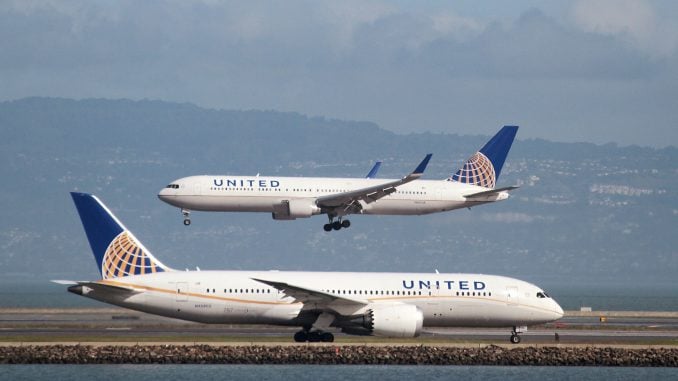
Have you heard of United Airlines CEO Oscar Muñoz? If you’re like most Americans, if you hadn’t before April 9 you certainly have now.Muñoz’s ham-handed response to the bloody, forcible removal of a passenger was terrible. But unlike other commentators, I won’t blame a lawyer for the CEO’s response, where he apologized for having to “re-accommodate these customers.” It had to have been a whole team of lawyers to draft something that bad. Surely it will live in public relations infamy, alongside then-BP CEO Tony Hayward’s cringe-worthy “I want my life back” remark during the Deepwater Horizon oil spill.Muñoz is now beating himself up on television multiple times a day, part of a whirlwind apology tour to contain the well-deserved outcry over the incident. I’m sure he wants his life back too, but I doubt you’ll hear him say it.But while Muñoz is a household name, Amtrak CEO Charles Moorman is likely not. Moorman is CEO of the perennially failing government-chartered passenger rail line. (Of course, to paraphrase Ronald Reagan, there’s nothing quite so perpetual as a failing government program.)Amtrak has had a rough go of it lately, with three accidents in the past few weeks on its tracks, two at New York’s Penn Station and one in Chicago. The derailments on Amtrak-owned track at Penn Station the busiest railroad station on the continent paralyzed commutes for workers in New York City and New Jersey. (The latest derailment, on April 3, started off a bad day for alumni of Duke University. Not only were they late to work and getting home, but then they had to watch arch-rival UNC Chapel Hill win the national championship in basketball that night.)It not all bad news for Amtrak, though. The National Railroad Passenger Corp., as it is officially known, posted a $230 million operating loss for its 2016 fiscal year. How in the world is that good news? Well, it’s quite a bit better than the $306 million loss in 2015, for instance. And when compared to the 2001 deficit of $1.1 billion, it seems downright peachy.The only reason Amtrak keeps rolling along at all is due to the confidence its creditors have that Congress will continue to bail out the company. That’s not just speculation. On April 10, the Wall Street Journal reported that Moody’s rating service mentioned “strong federal government support” as a key part of its rating.In fact, it is a safe bet that the only thing Amtrak fears is loss of that federal support, so don’t look for the railroad to cut funding on lobbying expenses or focus on its profitable routes in the Northeast corridor anytime soon. Cutting losses on unprofitable long-distance routes would make sense in the real world, but it would narrow Congressional support for the entity. In other words, it won’t happen.So what has happened as a result of the accidents? Well, the governors of New York and New Jersey are demanding answers. Through strongly worded letters, no less. Also, the CEO may have to testify before a Congressional committee, where he will certainly face strongly worded questions. Poor chap.In contrast to the political theater of Amtrak, consider what has happened to United. There is the harsh backlash and the autoflagellation by Muñoz. Meanwhile, United stock has lost more than half a billion dollars in value, or about 2 percent. That’s hardly in free fall, but that drop comes in the context of an earnings report due next week expected to beat expectations for the fifth straight quarter. In other words, the stock is taking more of a hit than it would appear at first glance.It would be disingenuous to try to hold up the airline industry as a shining example of a free market, considering the natural barriers to entry and how heavily regulated airlines are. But it’s still an Adam Smith case study compared to Amtrak.Most importantly, United is losing its own shareholders’ money when it does not turn a profit. If it loses enough customers even the ones it hasn’t beat up it will fold or be acquired.Airlines, after all, come and go. But Amtrak just sits there, losing our money. Drew Elliot is a member of the North State Journal’s editorial board, separate from the news staff. Unlike other newspapers, the North State Journal does not publish unsigned editorials; the author or authors of every editorial, letter, op-ed, and column is prominently displayed. To submit a letter or op-ed, see our submission guidelines.



